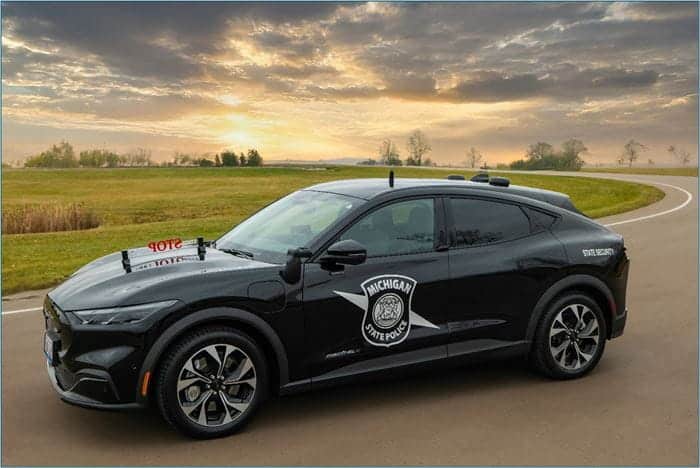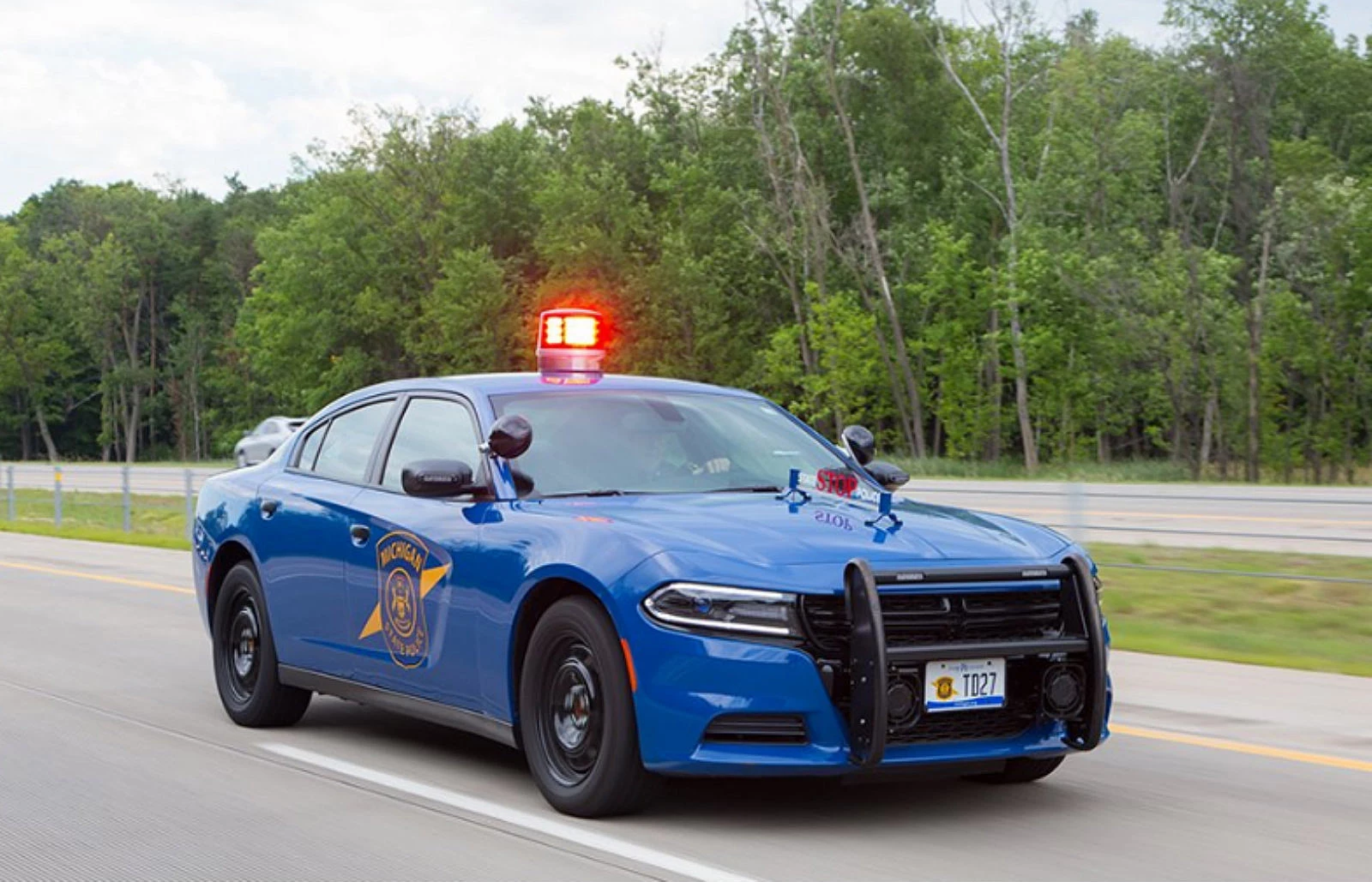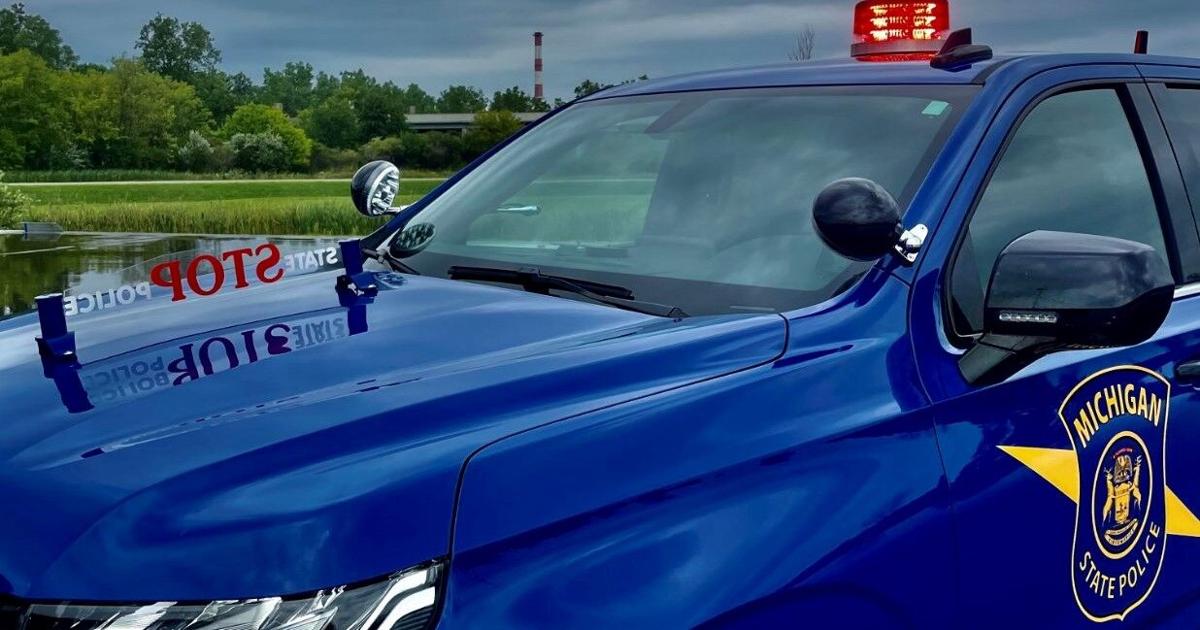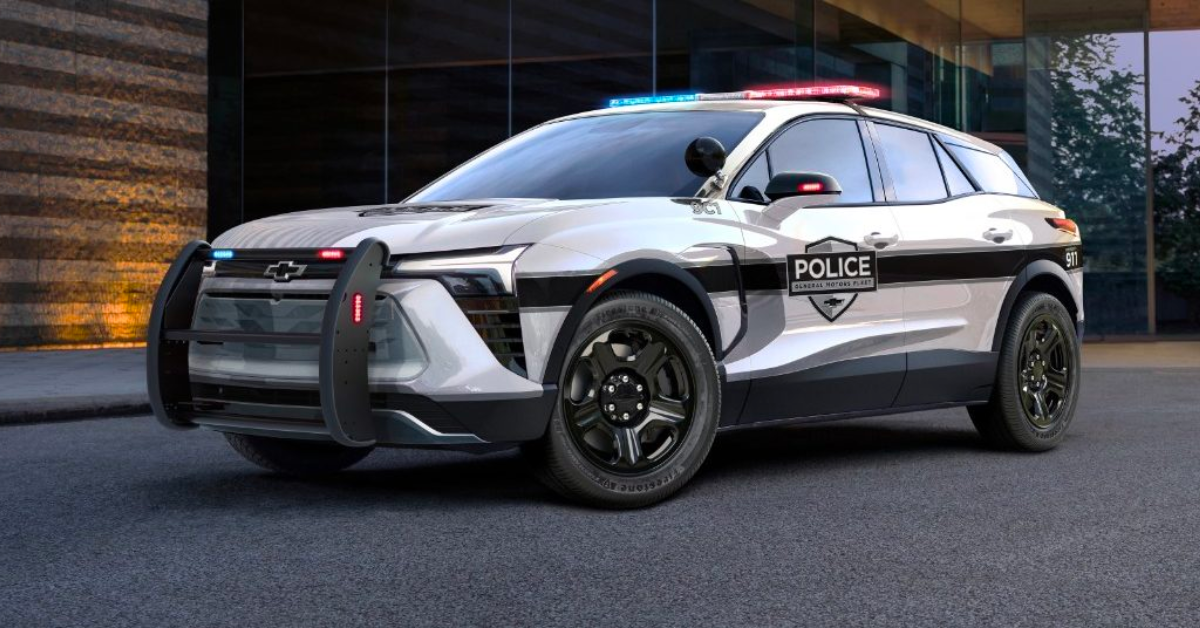Michigan State Police Electric Vehicle Patrol
The familiar rumble of Michigan State Police cruisers may soon be accompanied by a near-silent hum. The agency is actively integrating electric vehicles (EVs) into its fleet, a move poised to redefine law enforcement's operational footprint, impact the state's carbon footprint, and potentially reshape the future of policing. However, this transition isn't without its complexities and challenges, raising questions about range anxiety, charging infrastructure, and the overall suitability of EVs for the demanding world of police work.
This shift towards electrification represents a significant turning point for the Michigan State Police (MSP). It highlights the state's commitment to sustainability and innovation, but also prompts critical considerations about the practical implications of deploying EVs in a high-stakes environment. The article explores the reasons behind the MSP's EV adoption, the challenges and benefits observed so far, and the long-term implications for the agency and the communities it serves. This includes analyzing operational efficiency, cost-effectiveness, environmental impact, and the perspectives of both law enforcement personnel and the public.
The Drive Towards Electrification
The push for electric vehicles within the MSP is multi-faceted. It's driven by Governor Gretchen Whitmer's broader climate goals for the state and a desire to reduce greenhouse gas emissions from the public sector. The MSP also aims to modernize its fleet and explore potential cost savings in fuel and maintenance.
According to official statements from the MSP, the agency is participating in pilot programs and conducting rigorous testing to evaluate the suitability of various EV models. These tests include assessing performance in high-speed pursuits, emergency response situations, and routine patrol duties. The goal is to determine which EVs can meet the demanding requirements of police work.
Challenges on the Road
One of the most prominent concerns surrounding EV adoption in law enforcement is range anxiety. Officers rely on their vehicles for extended periods, often in remote areas where charging infrastructure is limited. The need for frequent charging could disrupt patrol schedules and potentially hinder emergency response capabilities.
Another challenge lies in the initial cost of EVs. While the long-term operational costs may be lower due to reduced fuel and maintenance expenses, the upfront investment in electric vehicles and charging infrastructure is substantial. This requires careful budget planning and may necessitate securing grants or other funding sources.
Furthermore, the performance capabilities of EVs, particularly in demanding situations like pursuits, are under scrutiny. Some critics question whether EVs can consistently deliver the acceleration and handling required for high-speed chases. The MSP is actively addressing these concerns through rigorous testing and data collection. The data will provide insights on performance under various conditions, including inclement weather and mountainous terrains, and provide data-driven answers to critics of the new technology.
Benefits in the Long Run
Despite the challenges, EVs offer several potential benefits for the MSP. The most obvious is the reduction in greenhouse gas emissions, contributing to a cleaner environment and supporting the state's sustainability goals. EVs also produce significantly less noise pollution, which could be particularly beneficial in residential areas.
Reduced maintenance costs are another significant advantage. EVs have fewer moving parts than gasoline-powered vehicles, leading to less frequent and less expensive maintenance. This can free up resources for other critical areas of law enforcement.
Moreover, the MSP hopes to enhance its public image by embracing green technology. Using EVs could improve community relations and demonstrate the agency's commitment to environmental responsibility. The introduction of silent EVs into patrol could also provide tactical advantages, such as stealth surveillance in certain situations.
Charging Infrastructure: A Critical Component
The success of the MSP's EV initiative hinges on the availability of reliable charging infrastructure. The agency is working with state and local partners to develop a network of charging stations strategically located throughout Michigan.
These charging stations need to be conveniently accessible to officers, both at MSP facilities and in the field. The charging stations will need to support fast charging to minimize downtime and keep vehicles operational.
The MSP is also exploring partnerships with private companies to expand charging infrastructure and ensure its reliability. These partnerships could help accelerate the deployment of charging stations and reduce the financial burden on the agency.
Officer Perspectives and Training
The acceptance of EVs by MSP officers is crucial for the success of the program. The MSP is providing comprehensive training to officers on the operation and maintenance of electric vehicles. This includes instruction on charging procedures, range management, and safe handling techniques.
Early feedback from officers participating in the pilot programs has been mixed. Some officers have expressed concerns about range anxiety and performance limitations, while others have praised the quiet operation and reduced maintenance requirements. The MSP is carefully considering this feedback as it refines its EV strategy.
Michigan State Trooper John Smith noted, "It's different, that's for sure. The acceleration is impressive, but getting used to the range takes time." Trooper Smith's experience highlights the learning curve involved in transitioning to EVs.
Looking Ahead: The Future of Policing in Michigan
The Michigan State Police's foray into electric vehicles is just the beginning. As battery technology improves and charging infrastructure expands, EVs are likely to become increasingly prevalent in law enforcement agencies across the country. The lessons learned by the MSP will be invaluable for other agencies considering a similar transition.
The long-term impact of EVs on policing could be profound. In addition to reducing environmental impact and lowering operating costs, EVs could also enhance officer safety and improve community relations. The transition will require careful planning, ongoing evaluation, and a willingness to adapt to new technologies.
Ultimately, the success of the MSP's EV initiative will depend on its ability to balance the benefits of electric vehicles with the practical demands of law enforcement. If successful, it could serve as a model for other agencies seeking to embrace a more sustainable and efficient future.


















